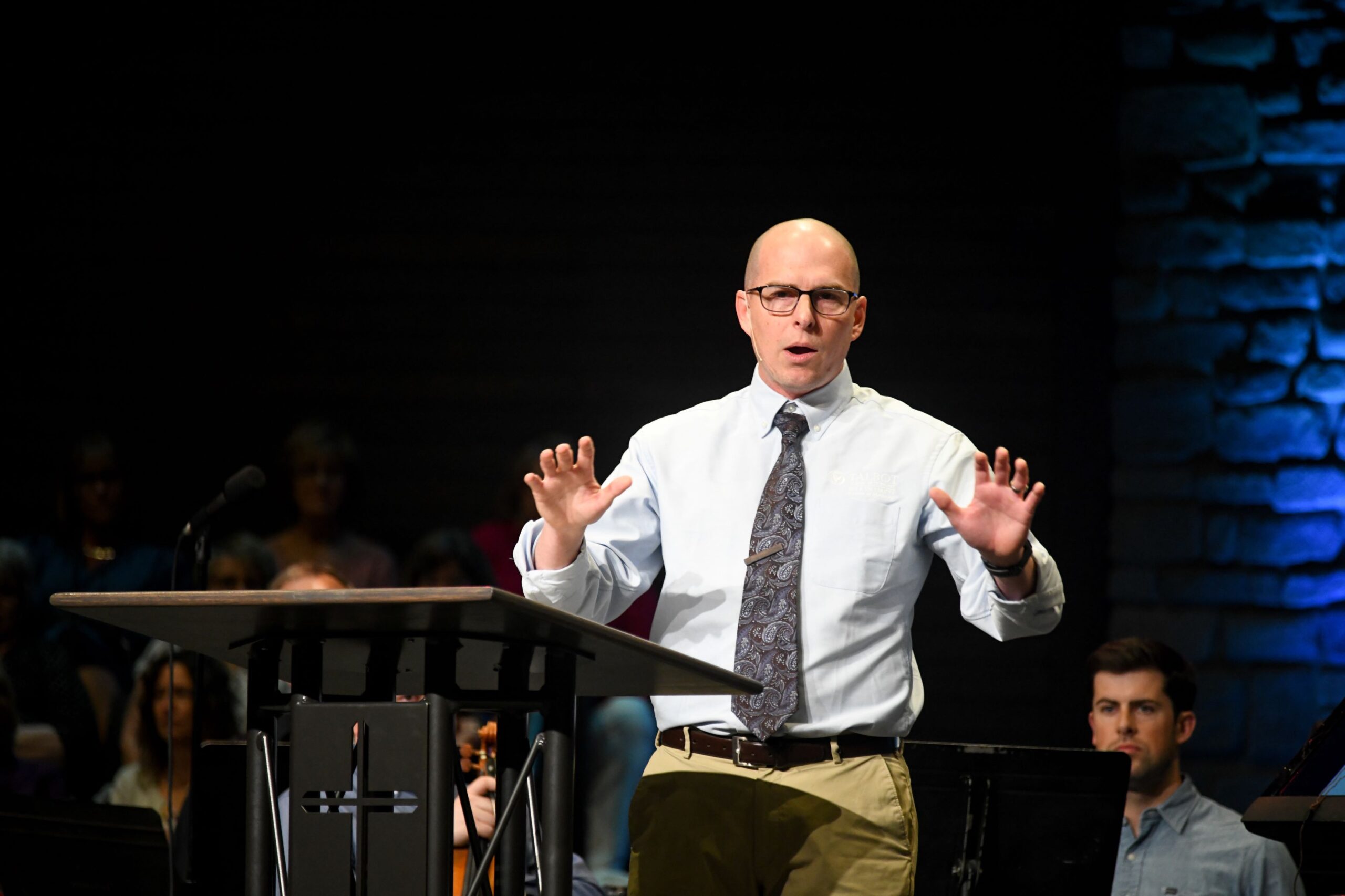November 1, 2021
Mental Health and the Church
Written By Grace Theological Seminary
Tagged With Preaching & Pastoring Master of Divinity

Throw a stone more than ten yards in any direction and the odds are pretty good that you will hit someone suffering from some type of mental illness. This is an unfortunate reality because the statistics are grim for those struggling with mental health, even inside the walls of the church. It is doubly unfortunate because now you have just hit them with a rock.
According to the National Alliance on Mental Illness, one in five U.S. adults experiences mental illness. One in twenty U.S. adults will admit to suffering from a serious mental illness. Nineteen percent of U.S. adults experience anxiety disorders. The real problem is that, according to these same surveys, only 45% of adults with a mental illness will get treatment in any given year.1
Of course, we can believe that the outlook will prove different when discussing mental health and the church, right? Sadly, no, because the stigma of mental illness has been that Christians should somehow be above those kinds of struggles. Until very recently in history, those following Christ have simply been encouraged to pray for these mental illnesses to go away.
But just as God sometimes allows for physical illness to befall His children, the same can be said for mental illness. The reality is that mental illness exists as much inside the walls of the church as outside. While 92% of pastors claim their church is equipped to care for the needs of a family who have experienced something as traumatic as suicide, only four percent of congregants said their pastors were even aware of a loved one struggling with suicidal thoughts.2
If the awareness of suicide is so low, it is futile to assume that other degrees of mental illness, which can be more easily hidden, would be more broadly talked about in the church. In fact, while 65% of churchgoing family members of those with mental illness want their church to talk openly about mental illness, only half of the pastors surveyed said they ever speak about the topic.2
It should come as no surprise then that only 27% of churches have a plan to assist families affected by mental illness. Even more unsettling, 53% of churchgoers with mental illness feel supported by the church.2
So what can be done to improve the state of mental health and the church?
1. Awareness
The first step in solving any problem is admitting that it exists. It’s the same for mental health and the church. According to the Anxiety & Depression Association of America, 264 million people struggle with depression and 40 million people struggle with anxiety.3 We can no longer afford to be surprised when the people sitting next to us in the pews of our churches have brought their struggles from the rest of the week in with them on Sunday mornings.
Acknowledging that the outside world has likely caused many of our mental illnesses should not be difficult. What may be harder to ensure those who are struggling is that their fellow brothers and sisters in Christ will not cause them to feel isolated in their struggles and judged as having less faith because they struggle.
Even within this first step, Christians can offer great harm or help in how they respond to those who confess struggling with any form of mental illness. Judging them as not having sufficient faith or even belittling them as being overly dramatic will only stall the important conversations needed between those whose hope is in the God who heals.
2. Belief
Step two is to believe the Bible has something to offer those struggling with mental illness and the church. Yes, we must acknowledge that God’s truth can offer both examples and solutions for these difficult topics.
Consider some of the people from the stores of the Bible who likely suffered from mental illness, even if only for a season. Elijah, after experiencing great spiritual victory against the prophets of Baal, told God he was weary and no longer wanted to live. While it can be easy for Christians to suggest he only needed a snack and a nap, the reality is that Elijah felt very alone. Even after eating and sleeping, Elijah declared to God that he was the only one left who followed God. (1 Kings 19:10) He needed to hear God reveal to him that there were still 7,000 Israelites who had not left God.
Elijah is not alone in these feelings of despair. King David certainly battled loss during his lifetime. He wrote, “My guilt has overwhelmed me like a burden too heavy to bear.” (Psalm 38:4) Job also had plenty of reason to mourn and grieve to the point of mental illness, having lost everything he owned and seeing all his children swept away as if they never existed. “I have no peace, no quietness, I have no rest, but only turmoil.” (Job 3:26)
Jeremiah, one who was given great visions of God’s future glory, also struggled. “Cursed be the day I was born…why did I ever come out of the womb to see trouble and sorrow and to end my days in shame?” (Jeremiah 20:14) If the heroes of our faith and those who had seen great miracles from the very hand of God could succumb to such base struggles as mental illness, we need to accept that our faith in God alone will not keep us immune from the same.
3. Challenge
Does this mean we have to simply accept mental illness and the church as two eternal partners destined to forever be together? Not exactly. While we do have the hope of an eternal home where we will have no more pain (even emotional), there are steps we can challenge ourselves toward even now.
We said earlier that admitting there was a problem was the first step toward a solution. But it’s not the last. King David, who experienced great lows in life, also celebrated epic highs. While he often cried out to God, he also offered praise to God as his healer. Here are but two examples.
“Even though I walk through the darkest valley, I will fear no evil, for you are with me; your rod and your staff, they comfort me.” Psalm 23:4
“You turned my wailing into dancing; you removed my sackcloth and clothed me with joy.” Psalm 30:11
Reading the Bible to discover both sides of the mental health battle will be important, as looking for the truth is key to assuring mental health. As cultural apologist Jim Denison said, “Renewing the mind is an ongoing, dynamic, ever-changing task. It requires listening for lies, catching them, and replacing them with truth. Renewing your mind can be done, but it requires understanding, work, vigilance, and commitment.”1
Are you interested in offering biblical solutions to hurting people? Ensuring our ministry leaders are equipped to help meet people right where they are is Grace Theological Seminary’s commitment. The Masters in Pastoral Counseling concentration is one such program which provides a strong foundation based on the biblical promises God offers His people to address mental health and the church.
1 https://www.denisonforum.org/resources/what-does-the-bible-say-about-mental-health/
2 https://lifewayresearch.com/2018/05/01/13-stats-on-mental-health-and-the-church/
3 https://www.christianity.com/wiki/christian-life/the-bible-say-about-mental-health.html
Share
Tagged With Preaching & Pastoring Master of Divinity


